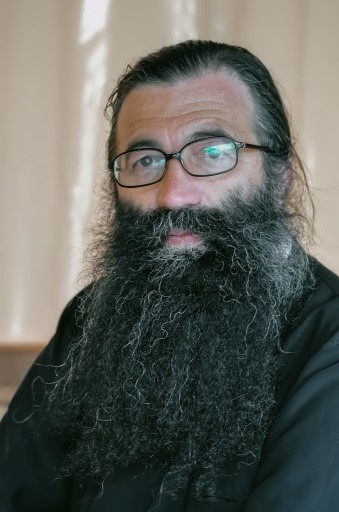By Larry Short, Community Ministry Director
While Martin was teaching this weekend as part of his Christmas behind the Curtain sermon on the value of people to God, I found and was thinking about the truth in 2 Corinthians 4:7—
But we have this treasure in jars of clay, to show that the surpassing power belongs to God and not to us.
While we know that God values us beyond comprehension (as demonstrated by His willingness to send His Son to suffer and die for our sins), we also know that He does not do this because of any intrinsic merit within us. We didn’t do any spectacular or beautiful thing to earn His respect. Nonetheless, He respects us. The treasure that He sees within us is a treasure that He has placed there, within these bodies (“jars of clay”) formed from dirt.
He breathed life (His Spirit) into us. He created us in His image, with the capacity to know right from wrong. He built into us the ability to dwell in relationship with Him and with one another. This was all of His doing and none of ours. If any glory comes of it, it goes to Him and not to us!
Martin shared how we must value and respect one another, because God values and respects us. This respect must play itself out in all our interactions with one another during the week, whether gathered at Elim, in community groups, on social media, or elsewhere.
In The Weight of Glory (p. 15), C. S. Lewis wrote:
It is a serious thing, to live in a society of possible gods and goddesses, to remember that the dullest and most uninteresting person you talk to may one day be a creature which, if you saw it now, you would be strongly tempted to worship, or else a horror and a corruption such as you now meet, if at all, only in a nightmare. All day long we are, in some degree, helping each other to one or another of those destinations.
Too often we simply “write off” people who annoy us or we are not interested in developing relationship with, for whatever reason. God does no such thing. In Scripture we see, amazingly, that He treats even Satan with respect! By writing people off, do we not risk helping them toward the wrong destination? How much more wonderful it would be if we could be a blessing to each person we touched throughout the day, encouraging them in their journey toward the right destination!
Why We Should All Be Involved in Community Groups
Community groups at Elim are a great place for you and I to “practice” being in relationship with God and others as we journey together toward an eternity with Christ. At Elim we have groups for women and for men as well as mixed groups. They are volunteer led at different times during the week, and they study various topics. All are focused on helping us grow God-ward and in loving and truth-telling relationship with one another. Here is a quick snapshot of current groups:
Mixed Community Groups
Jason and Hannah Comerford’s group starts at 5:30 p.m. each Monday evening. The group meets for a meal, Bible study (currently studying 1 John), prayer, and fellowship. Most members are in their 20s to early 30s.
Kendrick and Janna Gilli’s group meets on Friday evenings, 7 to 9 p.m. This group is for adults of all ages, married or single. Childcare space is limited. Their focus is on relationship building with God and one another.
Isaac and Rebekah McKenzie, along with Cameron and Jenn Severns, host dinner every Wednesday at 6:00 p.m. They’re currently going through the series The Truth Project.
Martin and Kim Schlomer lead a group that meets every other Monday evening, currently studying Colossians.
Brian and Tomina Sharpe lead a group meeting Tuesday evenings from 6:30 to 8:30 p.m. Members are of all ages.
Larry Short leads a prayer, practice,and fellowship group for developing and existing group leaders, meeting every other Tuesday evening at 7 p.m. and offering additional leadership-training classes outside of group meetings.
Men’s Groups
Four groups all meet on Saturday mornings:
- One is led by Tom Chase(every other Saturday morning).
- One by Ross Fitzpatrick,starting at 7 a.m. at his home.
- CoreMen is led by Isaac McKenzie twice a month at 9 a.m.
- One is led by Jeff Foerster.
Roger Petersohn leads a men’s group that meets on Sunday afternoons for coffee, called 2canDo, based on Ecclesiastes 4:9. It’s about developing Jonathan-David relationships with other men.
Women’s Groups
Candy Shattuck and Jo Cherland lead a Tuesday-evening (6:30 p.m.) study of the book of Colossians.
Cindy Waple leads two similar groups, the first every other Thursday at 9:45 a.m., and the other at 6:45 p.m. the same evening. They are studying Rooted in Love, a journey to a deeper understanding of and our response to God’s love.
For more information about these and other women’s activities, including MOPS (Mothers of Preschoolers) and MOMSnext, contact Kim Schlomer.
To get connected with any group leader about joining their group, give them a call or touch base with me for more information. My email is my name (Larry Short) with no spaces, followed by the at symbol then gmail dot com.
And visit this page regularly to keep up with any changes to community groups.

 Follow
Follow
